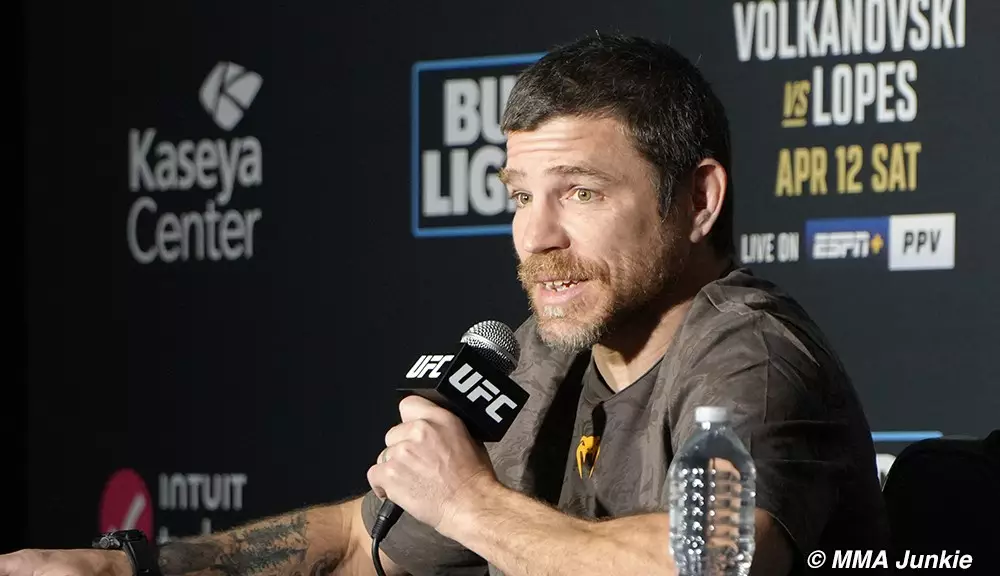In recent years, the issue of eye pokes in the UFC has become increasingly alarming, creating a ripple of controversy that can no longer be ignored. This debate intensified following the unfortunate incident where Henry Cejudo suffered a fight-ending eye poke against Song Yadong at UFC Fight Night 252. Such incidents can alter fighters’ careers, and Cejudo’s frustrations with the referee’s management of the situation bring to light the pressing need for reform. The UFC, often seen as the pinnacle of mixed martial arts, must take proactive steps to protect its fighters from debilitating eye injuries caused by accidental pokes.
Jim Miller’s Perspective: A Call for Accountability
Veteran fighter Jim Miller recently voiced his thoughts on the issue, suggesting that severe penalties, including disqualifications, should be enforced for eye pokes. In an interview leading up to his fight against Chase Hooper at UFC 314, Miller emphasized that treating eye pokes as a foul punishable by disqualification could reduce their occurrence dramatically. It could create a culture of accountability that may otherwise be lacking when fighters know they run little risk of suffering severe repercussions for such infractions.
Miller’s willingness to own his mistakes in this regard illustrates an important perspective within the sport. He candidly acknowledged that he has been guilty of inadvertently poking opponents in the eye during grappling exchanges. His admission highlights the human element of these accidents—while unintentional, the outcomes can be devastating. Miller suggests that fighters must alter their behavior if faced with strict consequences, prompting a larger discussion about how rules can be adjusted to enhance fighter safety.
Confronting the Fear Factor
One might argue that imposing harsher penalties could instill a fear factor among fighters regarding eye pokes, but is this fear unwarranted? UFC fighters operate under intense pressure, often in high-stakes situations where split-second decisions can mean the difference between victory and defeat. An enhanced disciplinary framework could serve as a deterrent, not just for eye pokes but for other dangerous actions. If athletes are aware that they could face disqualification for reckless behavior, they might adopt a more cautious approach, reducing the risk of harm not only to themselves but to their opponents as well.
This leads to a vital question: Should the UFC prioritize fighter safety or the continuity of a fight at all costs? The answer should be unequivocal. The health and well-being of athletes must come first. As athletics evolve, so too should regulations designed to protect those who risk their lives for sport. MMA fighters deserve the same standards of safety and ethics that are seen in other professional sports.
A Future for Fighters
Reforming eye poke penalties could also pave the way for a broader reevaluation of rules concerning other types of fouls in the UFC. As the sport continues to grow in popularity, it must also mature regarding accountability and safety. The potential implementation of severe penalties could serve as a wake-up call—not just for athletes but for regulators, trainers, and fans. Fighters like Miller are leading the charge in advocating for change, but it ultimately falls on the UFC’s leadership to enact policies that genuinely protect the health of its competitors.
If the UFC wants to solidify its standing as the foremost organization in mixed martial arts, it needs to lead genuinely by example. That means ensuring fighter safety is paramount amidst the excitement and thrill of competition. With visionary ideas like those proposed by Jim Miller, the landscape of the UFC may finally evolve into one that prioritizes the fighters’ health above all else.

